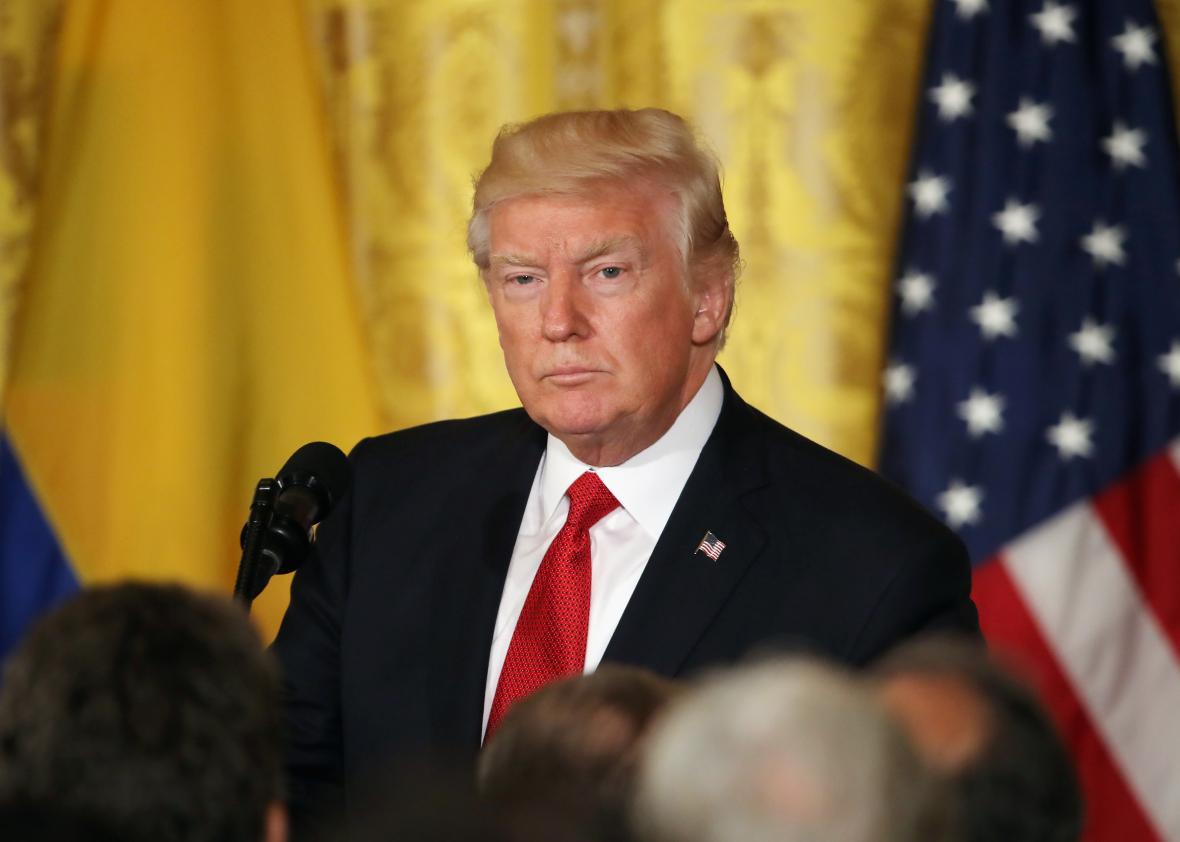
Photo by Mark Wilson/Getty Images
It’s often said that presidential budgets are mere “wish lists”—documents that let administrations showcase their principles and spell out policy ideas that have very little hope of making it into law. The White House can only make suggestions about spending, after all. The actual hard work of setting the government’s funding levels is done by Congress, where members have their own ideas and concerns.
But “wish list” feels like the wrong way to frame the repugnant grab bag of spending cuts Donald Trump’s staffers are preparing to drop on Tuesday. For starters, there’s a good chance our president doesn’t really understand the contents of the proposal going out under his name—recall that this is the man who couldn’t even be bothered to learn what was in the House health care bill he lobbied for. Trump won’t even be in the country when the budget is released. While that may just be a timing coincidence, it also feels aptly symbolic of the president’s personal investment in the proposal. It seems highly unlikely he truly cares much about whether most of the budget’s contents pass.
You might instead think of Trump’s first full budget—as is traditional for new administrations, the White House released a partial “skinny budget” in March—as a permission slip. It is essentially a stack of papers telling Republicans that they are free to go wild butchering essential pieces of the safety net in order to fund extraordinary tax cuts for the wealthy and increased defense spending. Food stamps? In Trump’s proposal, the Supplemental Nutrition Assistance Program gets $193 billion in cuts over 10 years, and would allow states to stiffen work requirements for the program. Temporary Assistance for Needy Families, aka welfare as we now know it? Its already anemic funding gets slashed by $21 billion. The administration is already trying to spin this kind of hatchet work as “welfare reform”—but it’s mostly just a signal to conservatives that they can get their cleavers out, should they feel compelled. The same goes for the $800 billion in Medicaid cuts, which mirror the reductions in the House health care bill, and the reported reductions to Social Security Disability Insurance. (Update, May 23, 8:46 a.m. Actually, it appears the proposed Medicaid cuts go billions go beyond what’s in the ACHA, enough to cut the program by 47 percent over a decade.)
None of this is especially surprising. Trump’s budget director is Mick Mulvaney, a former Tea Party congressman from South Carolina who seems to largely have been given free rein to design this blueprint. With Mulvaney in charge, it was always going to be a bloodbath, full of the kinds of cuts to social spending Republicans have been advocating for years.
For that reason, the most important thing about the budget may be what’s not in it. The plan reportedly will not call for any cuts to Medicare or Social Security benefits for seniors, which Trump promised not to touch during his presidential campaign (he also promised not to cut Medicaid and failed to mention that his promises to protect Social Security didn’t include the disability portion of the program, which many of his supporters in West Virginia and Kentucky likely rely on, but who’s counting?). Mulvaney personally supports raising the Social Security retirement age to 70 and means-testing Medicare benefits, but in April he said Trump had vetoed such changes to the programs. When it comes to those two entitlements, Trump is apparently checked in, resisting the traditional conservative agenda.
Otherwise, he’s granting Paul Ryan permission to cut away. And that, ultimately, is what makes Trump’s budget so frightening. Even if the whole package probably isn’t going to become a reality, it’s still a sign that he won’t stop Republicans enacting whatever rash part of their agenda they manage to legislate. And while they may be more hesitant to pass dramatic cuts to some programs now that they’re actually in power and liable to suffer the electoral consequences—many come from farm states that tend to like food stamp spending, for instance—the GOP now has an empty suit in the oval office who’s apparently willing to bring their most extreme ideas to life. He might not even bother to read them first.